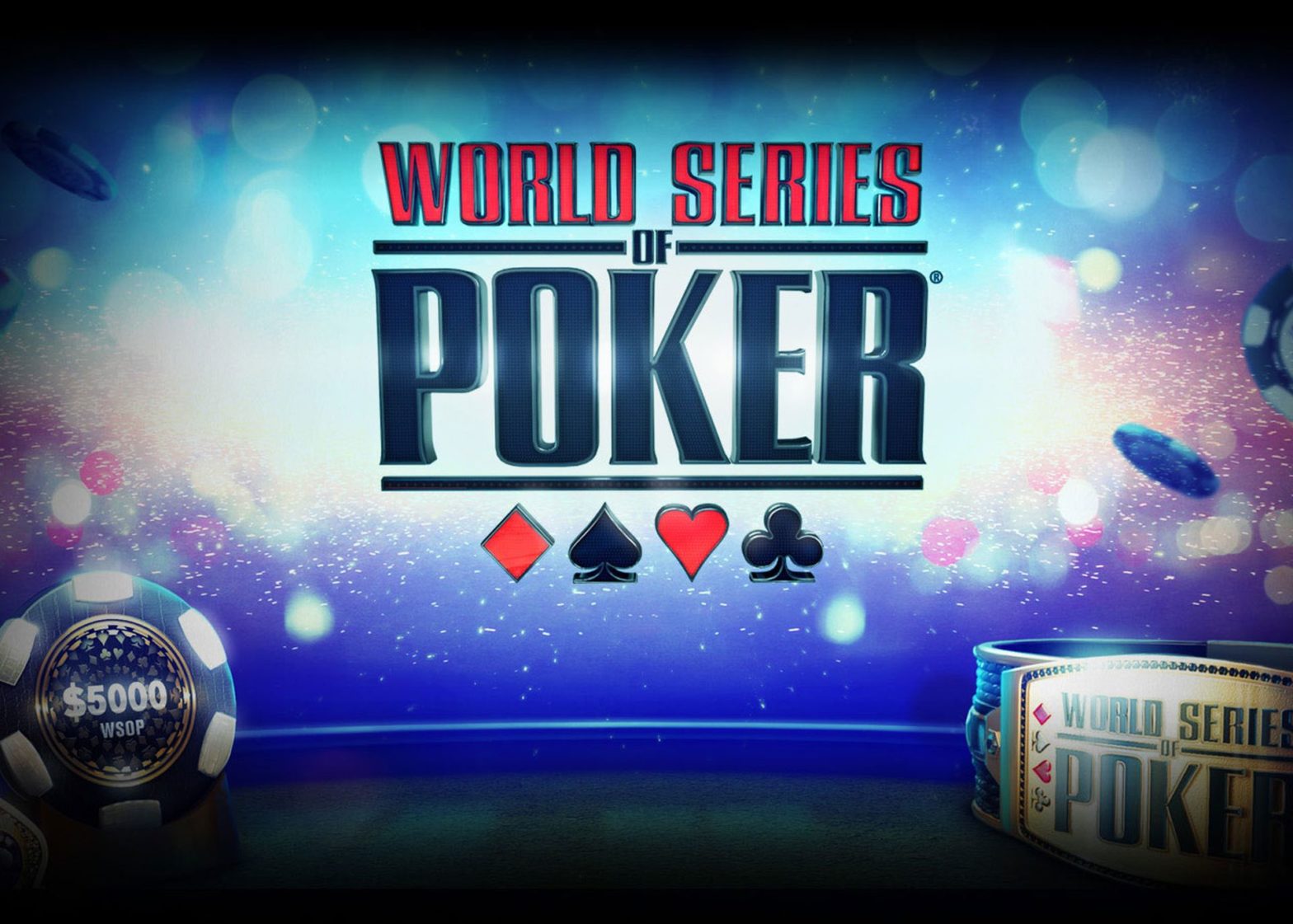The World Series of Poker endured a healthy dose of online controversy in recent days that had little to do with the actual playing of poker. Instead, the WSOP created a middling furor when it released a new rule governing how people with (or who have been exposed to) COVID-19 will be treated.
It didn’t go as planned. The resulting furor forced the WSOP to issue a clarification that was also a partial backtrack. And, the issue of how the world’s largest live poker series will handle some of the pandemic issues remains at least partly unclear.
The controversy began when the Caesars-owned World Series of Poker issued its 2021 rule book a few days back. The rules are updated for each iteration of the series, with rules added or adjusted to deal with changes in how games are played or governed. This year’s edition included a brand new Rule #115:
In accordance with guidelines promulgated by the Centers for Disease Control, [Rio] reserves the right to remove any Participant from any WSOP Event at any time prior to or during the WSOP Event, in its sole and absolute discretion, for any health or safety related reasons, including but not limited to, if Participant is determined by [Rio] in its sole discretion, to have received a positive test result for COVID-19 or come into close proximity (within 6 feet for 15 cumulative minutes) of any person who has tested positive for COVID-19, or if Participant refuses to undergo any health and safety screening required by [Rio] to participate in a WSOP Event. If Participant is removed from a WSOP Event pursuant to this paragraph, and for no other reason, Participant shall not be entitled to any compensation or remuneration of any type other than what Participant had already been awarded prior to being removed from the WSOP Event. However, for the avoidance of doubt, should Participant be disqualified for any additional reason or reasons that subject Participant to penalties pursuant to the Official Rules, those penalties shall apply. Further, in the situation where one or more Participants is disqualified pursuant to this Paragraph, [Rio] reserves the right, in its sole and absolute discretion, to determine whether to proceed with any WSOP Event as scheduled or to postpone or reschedule a WSOP Event, or any portion of a WSOP Event, to a later date.”
‘Close proximity’ triggers players’ ire
The furor was immediate. While the new rule was designed to protect Caesars’ and the WSOP’s corporate and financial interests, it did not offer the same grace to would-be participants. As many people quickly pointed out, the new Rule 115’s statement on “close proximity” defied not only the safeguards many players are choosing to make — being vaccinated, wearing a mask, etc. — but also the very nature of how WSOP events are played.
Each table in a full-ring event includes nine players and a dealer, and each of them sits in close proximity to several of the others. (It can be 10 players plus a dealer in some circumstances.) As the rule stated, as initially released, if someone at your table tested positive for COVID, you’d be disqualified as a player, through no fault of your own.
2004 WSOP Main Event champ Chris Moneymaker was among those who quickly saw the many problems the policy would cause. He posted this on Twitter soon after the new Rule 115 was announced:
Moneymaker, it should be noted, had announced a couple of days earlier that he would skip the 2021 WSOP entirely. He has an eight-year-old son who currently cannot be vaccinated, and he values his family’s health and safety highly. That’s something of a blow for his new sponsor, Americas Cardroom (ACR), who had hoped to gain more brand exposure from the popular Moneymaker’s annual visit to Las Vegas. But that will have to wait at least another year.
Flaws in Rule 115 quickly exposed
The posts by Moneymaker and others shed light on numerous problems with the new rule as stated. The issue with dealers in particular can’t be overstated. Should any dealer at the WSOP test positive for the coronavirus, it’s a bad situation. Dealers normally rotate to new tables every hour, or “down”, while at the WSOP. Think of trying to track all the players who might have spent an hour with a given dealer at a table.
Then, just to add another compounding factor, think of the process of breaking tournament tables, where all those players who may have spent several hours battling one another are then distributed to several different tables. It’s ridiculous to think that the WSOP could do any sort of contact tracing in the context of player moves and tables being broken.
Oh, and the Amazon Room contains perhaps 200 tables in any given year. other ballrooms at the Rio Convention Center hold several hundred more.
It just wasn’t going to work. At all. The rule as stated might have sounded great to the lawyerly types who gave it a once-over, but trying to apply it? No chance. Regarding the players, it defied responsible players’ attempts to take their own precautions. And regarding the WSOP’s workers, well, this rule was designed for the players. No one knows, publicly, what mandates the dealers and floor staff and the cashiers and servers and security guards and maintenance workers — and third parties such as media — will be ordered to follow. There seems to be a gag order on that, but come late September, what is in place for the workers will be evident to all.
WSOP issues ‘clarification’ on Rule 115
Something had to change, right quick. Within a couple of days, in the face of massive player pushback and the claims by many of those players that they were cancelling their tentative plans to play, the WSOP changed course. As posted on Twitter:
This clarification appears to gut the “close proximity” standard as originally conceived. Instead, if players can show they’ve been vaccinated and are symptom-free, they’ll be allowed to continue playing, whether they’ve had extended contact with a positive COVID case or not.
It also hints that further “clarifications” regarding pandemic-related issues are likely to appear in the coming weeks. The language in the WSOP’s Tweet implies that players must be able to show proof of vaccination in order to evade a possible disqualification. As yet, however, that topic hasn’t been addressed.
Masks an unaddressed issue to date
There’s also some unfinished business regarding the wearing of masks. It’s hard to imagine that the WSOP will ban the wearing of facemasks designed to help protect against coronavirus infectivity and spread. I can remember that in 2018, there was a Filipino player who won one of the big turbo events while wearing a medical mask the entire event. Such wearing of masks has been more socially acceptable in Asian Pacific Rim countries for some years, even before COVID. They’ve been ahead of the curve.
Yet the WSOP has not chosen, to date, to announce any modifications to Rule 55, the infamous “Phil Laak Rule”. That’s designed to prevent the wearing of masks or concealing one’s identity in other ways, though as a concept it predates the COVID-19 threat. Here’s how Rule 55 still reads:
Participants may not cover or conceal their facial identity. Tournament officials must be able to distinguish the identity of each Participant at all times and may instruct Participants to remove any material that inhibits their identification or is a distraction to other Participants or Tournament officials. Participants may wear sunglasses and sweat shirts with hoods, but may be asked to remove them if Tournament officials cannot identify them.
I would expect that players who wear masks designed to hinder infection will be affronted by floor staff who demand to see their full face, with the possible exception of when a player first takes his seat and receives his chips in any given event. Still, I expect a clarification on it.
Mask and vaccination mandates still a possibility
The WSOP will likely wait as long as possible before deciding whether vaccines and/or mask wearing shall be mandated. Just yesterday, despite resurging COVID-19 infectivity rates, Nevada Gov. Steve Sisolak declared that masks no longer must be worn at venues that demand that those present at the venue are vaccinated.
This directly impacts the WSOP and every other large poker event coming up this fall. I think the betting line is that all WSOP attendees — workers and players alike — will end up having to prove they’ve been vaccinated. Wearing a non-full-face mask won’t be forbidden, but will instead be a bonus option allowed under the need for greater health and safety.
Again, further clarification will be needed.
And for the anti-vaxxers out there — you know who you are — it’s likely going to be a case of “too bad, so sad”. No unvaccinated player has the legal right to force his way inside the Rio and demand to be seated if a vaccination policy is in place. I’ve got to admit, though, it’ll be interesting to see what “star” players might try to attempt flaunting such a vaccine mandate. Poker players as a class have a slightly larger percentage of asocial personalities than the world at large, referring to those who care only about the game and the money and who secretly couldn’t give a damn if the player in the next seat keeled over from something entirely preventable.
This year, some basic social responsibility shall almost certainly be forced upon them. And that’s a very good thing.

